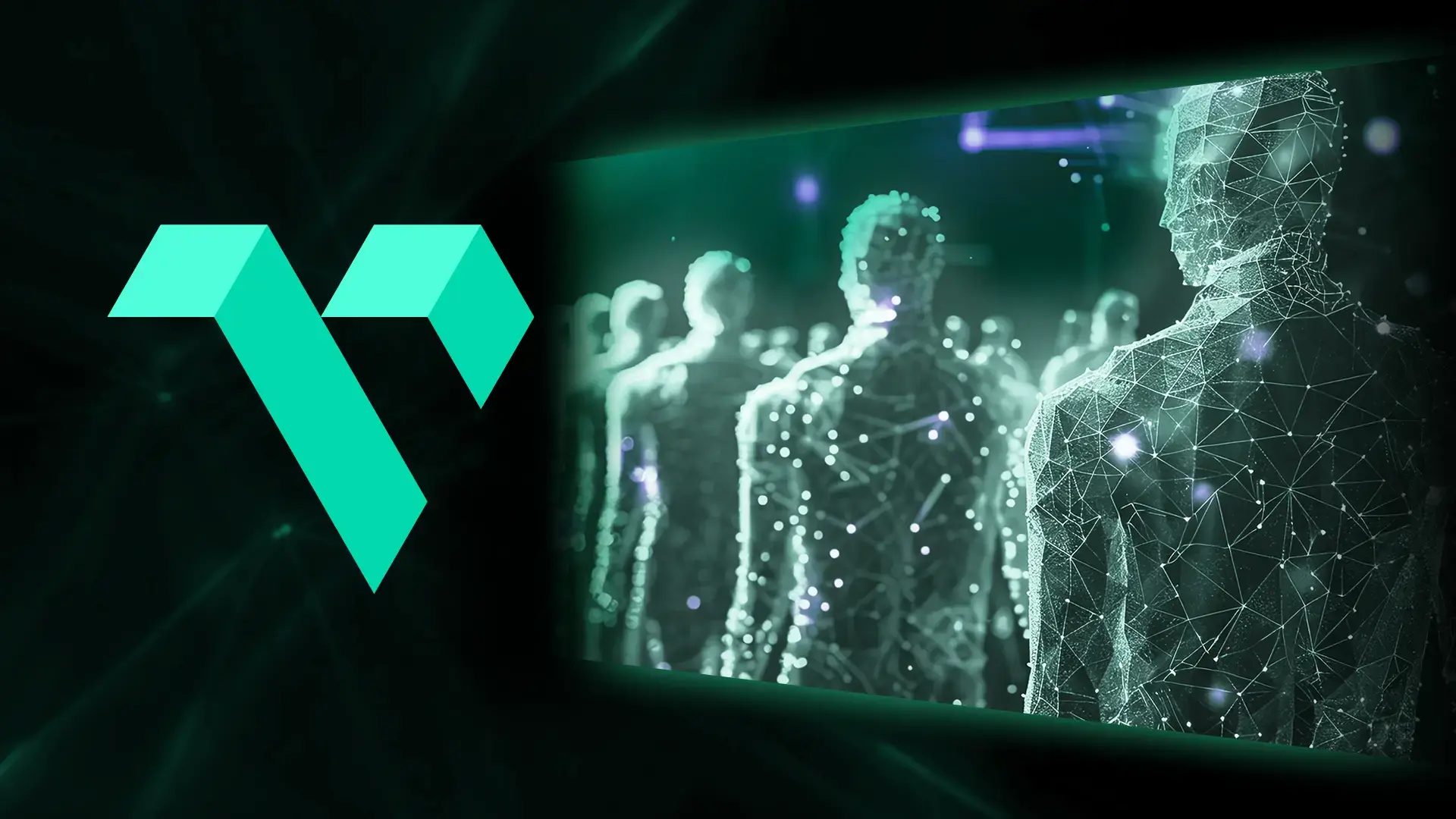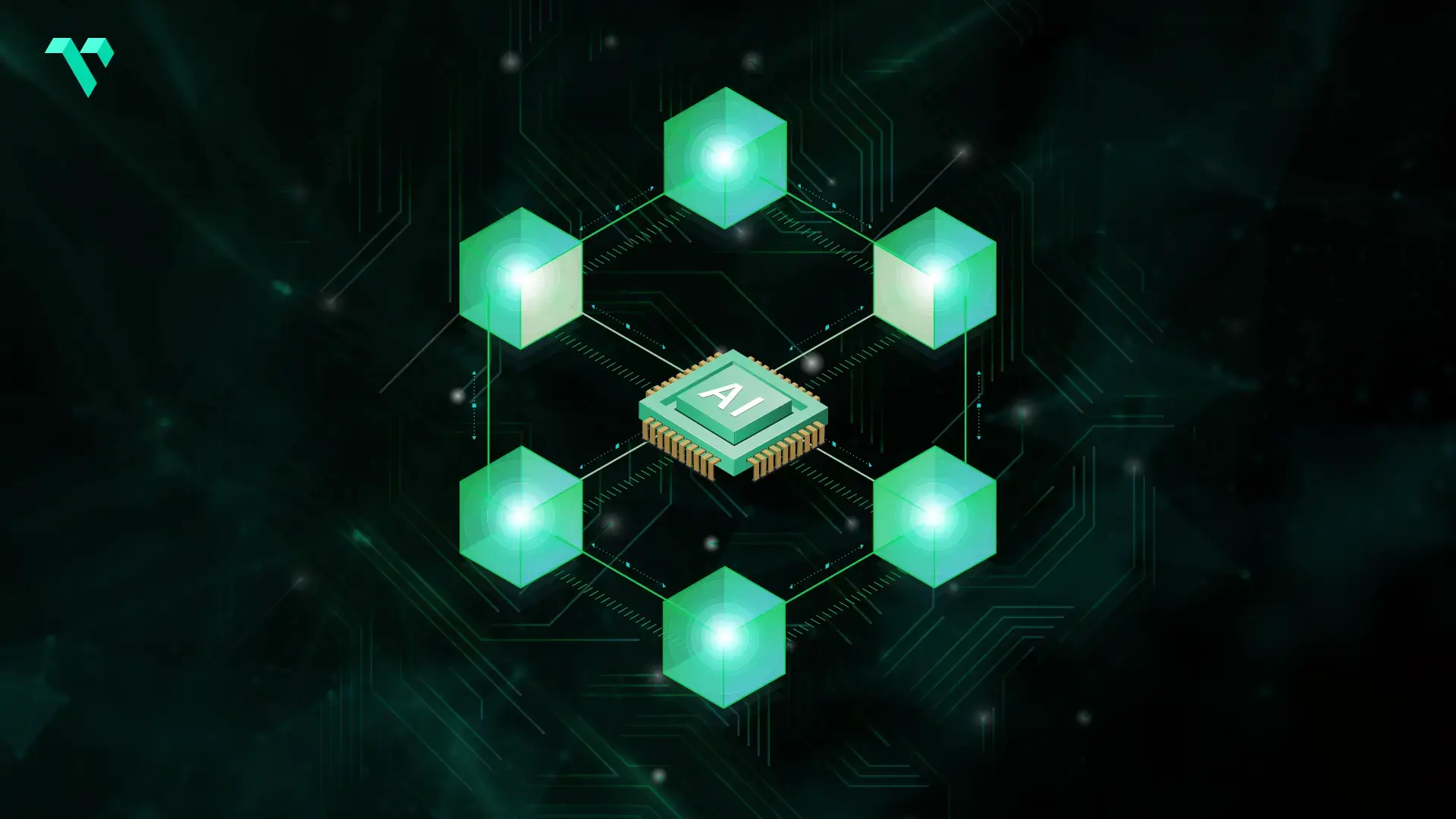


With data emerging as the new currency of our time, the influence of Blockchain and AI is more than a novel concept; it represents a transformative alliance. The global AI market, valued at over $136 billion in 2023, is projected to reach nearly $1.6 trillion by 2030. Simultaneously, blockchain technology, initially known for its association with cryptocurrencies, is expected to grow from $7.18 billion in 2022 to $1.63 billion by 2029. This widespread adoption spans industries ranging from financial services to healthcare. Companies such as IBM, Microsoft, and Oracle, along with innovators like Fetch.ai, Ocean Protocol, TARS AI, and LAIKA AI, are heavily investing in the combined power of these technologies to build secure, efficient, and transparent enterprise solutions.
Blockchain and AI create a powerful synergy by addressing each other's limitations. AI thrives on high-quality, reliable data, while blockchain provides a transparent and immutable data-sharing environment. Blockchain’s decentralized ledger ensures that data used in AI training is authentic and traceable, which is crucial for reducing bias and improving model accuracy. This partnership is particularly valuable for industries seeking to introduce innovative solutions while maintaining stringent data governance standards.
One significant challenge in AI today is the "black-box" problem, where complex algorithms make decisions that are difficult to interpret. Blockchain helps address this issue by providing a trail of data provenance—tracking where data originates, how it is processed, and how decisions are derived. This fosters transparency and trust, aligning with regulatory requirements. In industries like finance, for example, this capability ensures that AI recommendations are based on verifiable, high-quality data. Blockchain enhances explainable AI, allowing stakeholders to review the data and algorithms involved in decision-making processes.

Blockchain’s immutable ledger makes it an ideal foundation for AI applications in privacy-sensitive sectors like healthcare and finance. Unlike traditional centralized systems, blockchain secures data across a distributed network, reducing vulnerabilities. This is crucial for sectors prioritizing data confidentiality, as it ensures that sensitive information remains protected. Platforms like Inflectiv leverage this technology to enhance security, fostering trust in AI-driven applications.
The combination of AI and blockchain is transforming various industries, delivering innovative solutions:
Blockchain can maintain secure, tamper-proof patient records, while AI processes this data to generate diagnostic insights. The decentralized nature of blockchain ensures that sensitive medical data is accessible only to authorized parties, addressing privacy concerns and enhancing AI-driven healthcare services.
In the financial sector, blockchain ensures transaction integrity, preventing fraud. Meanwhile, AI models analyze transactions to detect suspicious patterns. Together, blockchain and AI enhance security, speed up transactions, and optimize risk assessment. This combination is revolutionizing financial services by improving efficiency and transparency.
Blockchain provides traceable supply chain data, ensuring transparency from production to delivery. AI analyzes this data to optimize logistics, predict disruptions, and manage inventories. This synergy enhances operational efficiency, reduces costs, and benefits both suppliers and consumers.
Decentralized AI agents can function autonomously, interacting with real-world data while maintaining security through blockchain. These agents support applications ranging from customer service to automated trading, ensuring trustworthy operations with blockchain’s transparency.
Advantages:
Challenges:
Despite the advantages, integrating blockchain and AI presents challenges. Both technologies require significant computational resources, and their effective integration demands expertise in both fields. Data privacy is another concern, especially as AI models analyze sensitive data. Addressing these challenges is essential for broader adoption. However, as these technologies evolve, innovative solutions are likely to emerge.
The convergence of blockchain and AI is driving a more transparent, secure, and decentralized future. This synergy is redefining how data is secured, shared, and utilized, unlocking new possibilities for innovation. Industries like healthcare and finance are already experiencing the transformative impact of these technologies.
AI and Blockchain Platforms like Inflectiv are at the forefront, making decentralized AI a reality. This marks the beginning of an era where data is not only a valuable resource but a shared asset that drives collaborative innovation. For developers and organizations, the journey has just begun, and the potential of blockchain and AI is boundless.